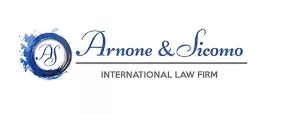VAT intra-Community supplies: all you need to know on intra-Community supply of goods, reverse charge and VIES.
Cross-border VAT rates in Europe: what does intra-Community supply mean?
Before talking about VAT on intra-Community supply of goods, we should talk about the meaning of the expression "intra-Community supplies".
Intra-Community supplies refer to the acquisition of the rights of property or other usage rights for consideration on goods sent to or transported across the territory of the Italian State from another Member State or from another establishment of the same business.
Transports relating to intra-Community acquisitions of goods can be carried on by the supplier or the purchaser (both VAT taxable persons) or by a third party acting on their behalf.
In short, intra-Community acquisitions of goods are sale operations which are not taxable in the supplier's country, but that are VAT taxable in the country where the goods are delivered.
On the contrary, in case of transactions not meeting all requirements for VAT taxation (that is objective, subjective, and territorial requirements) cannot be considered as intra-Community acquisitions of goods.
Therefore, the definition of intra-Community acquisitions of goods does not cover:
- gratuitous donations;
- transferors or transferees who meet the requirement of private consumer;
- goods which stay in the same UE Member State in which they are purchased.
In the above hypotheses acquisitions from other EU Member States are subject to taxation in the transferor's Member State, according to the rules governing internal operations.
Cross-border VAT rates in Europe: 2020 news
The Directive (EU) 2018/1910 entered into force on 1st January 2020, imposing new rules on VAT on intra-Community supply of goods. The above mentioned Directive is additional to the EU Regulation No. 2018/1912, but it has not been incorporated into Italian Law yet, and therefore there is high uncertainty in the juridical framework applicable to intra-Community supplies.
The European Directive introduced many new rules, the most important of which is VATexemption for intra-Community transactions, when the following conditions are met:
the VAT-registered transferee identifies himself, for VAT purposes, in a Member State other than that of departure of the goods (not necessarily the Member State of arrival) and has communicated its VAT number to the transferor.
the transferor complies with the obligation to indicate the transfer information in the INTRASTAT Model; any non-compliance with this obligation, however, does not necessarily lead to the refusal of the exemption, if it is duly justified in a manner deemed satisfactory by the competent authority and therefore the good faith of the transferor is proven.
Cross-border VAT rates in Europe: VAT reverse charge EU and VIES register
When speaking of VAT on intra-Community supply of goods, we cannot fail to mention the so-called reverse charge.
By virtue of the reverse charge mechanism, the supplier of the goods or the service provider are not required to charge VAT on the invoice. This derogates from the general rule on VAT, according to which whoever carries out a supply of goods or a provision of services is required to charge VAT to the transferee.
With the reverse charge mechanism, the transferor remains liable for VAT payment to the Inland Revenue, while the transferee or customer will be required to register VAT both in the register of invoices issued and in the register of purchases.
The reverse charge mechanism is applied only in cases where the transaction received is one of those regulated:
- By Articles 17(5), 17(6), and 17(7) of the Italian Presidential Decree No. 633/72 (internal transactions);
- By the Legislative Decree No. 331/93 (intra-Community operations).
Otherwise, the VIES (VAT Information Exchange System) system is an electronic tool for validating the VAT number of economic operators registered in the EU for cross-border transactions of goods and services.
It is very useful in online purchases, as it allows the supplier to be know the VAT taxable person, that is the supplier is able to know wether he has to apply VAT or the customer has to pay it.
How should intra-Community supplies be proven? Here are some explanations by the Italian Revenue Agency
Because of the introduction of art. 45-b of the EU Implementing Regulation no. 282/2011 (VAT Regulation), the Italian Revenue Agency, by means of Circular no. 12 of 13 May 2020, provided clarification on the documentary evidence relating to intra-Community acquisition of goods, transport or shipping of goods to another Member State, .
Indeed, the European Regulation establishes a "relative" presumption of transport and/or shipment of goods within the Community, which allows the different operators to use different means of proof, as identified by the national practice of each Member State.
The Italian financial authorities, however, will have to evaluate in each case if the documents presented are suitable to prove that Community transport has taken place.
The Circular contemplates cases in which the presumption of Community transport is questionable, namely:
- When the goods are found to be in storage at the seller's warehouse;
- An accident during transport is acknowledged, which resulted in the destruction of the goods;
- When the documents include incorrect or false information.
In such cases, the taxpayer still has the opportunity to demonstrate with other objective evidence that the intra-Community transaction actually took place.
Arnone & Sicomo international Law Firm has a department of European Union tax attorneys specialized in International Taxation and fiscal Law. Many of our customers are foreign companies interested in having tax legal advice on tax obligations to be carried out in intra-EU trade.
European legislation is in constant evolution, and therefore, being assisted by lawyers who keep themselves constantly updated on new Laws becomes indispensable for those interested in developing and implementing their business.
The support and quality of advice make this Law Firm a focal point in Europe for tax litigation.
The content of this article is intended to provide a general guide to the subject matter. Specialist advice should be sought about your specific circumstances.

